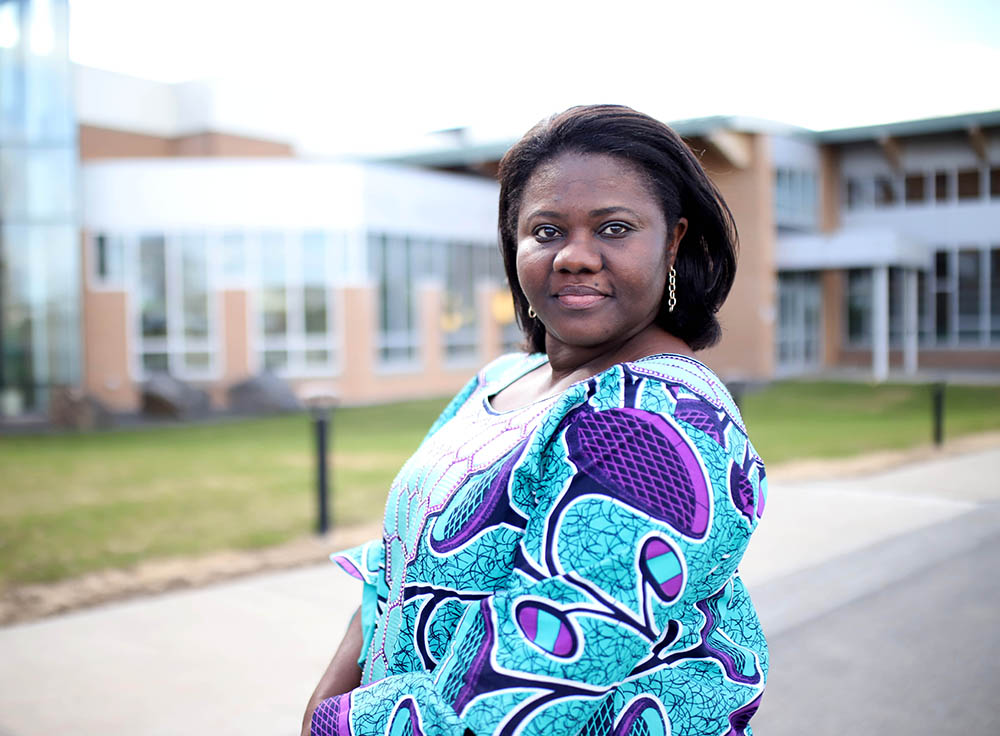PRESQUE ISLE, Maine — Victoire Liwanga recently became workforce development coordinator for New Mainers at Northern Maine Community College.
Originally from the Democratic Republic of Congo, she will continue efforts began by the Northern Maine Growth Initiative — a task force comprised of local business and community leaders — to build connections to the refugee community in Maine and provide resources and support to families seeking to build a life in Northern Maine.
The new position is partially grant-funded through a Community Development Block Grant submitted by the City of Presque Isle and a Maine Community College System Workforce Development Innovation grant. Although originally designed as a two-year position, the college aims to establish a permanent role to support this critical effort.
According to the Greater Portland Immigrant Welcome Center, “New Mainers” are immigrants or refugees currently living in Maine.
“Our community needs to attract residents and families looking to get an education, join the workforce, and build a life and a future. Aroostook is a special place, and there are New Mainers looking for a community like ours, with great schools, jobs, safe neighborhoods, and beautiful nature,” said NMCC President Tim Crowley.
“Many of these families currently live in central and southern Maine, and Aroostook County’s geography makes it challenging for them to learn about our community,” Crowley said. “That’s why we’ve hired Victoire. She’s helping build a bridge, and her experience, connections, and skills make her uniquely qualified.”
Liwanga brings an extensive background in community-building and working with diverse populations in Maine and internationally. She left a professional career when her family chose to leave the Congo; she needed to learn English when she arrived in Maine in order to pick up where she left off professionally.
She is now bilingual and has prior education background in financial management. In Portland, she worked with nonprofits, Catholic Charities, Maine Public and the Portland Adult Education Program. Prior to emigrating, she worked with the World Bank Group and the African Development Bank.
“This is my opportunity to give back to the community that helped me,” Liwanga said. “Without our community we would not be where we are. These people are my second family, and this is an opportunity to work as a bridge to the great things Aroostook has to offer.”
Since moving to Maine her family relied on guidance and connections from the New Mainer Resource Center, Catholic Charities and the City of Portland.
Liwanga will be based in Portland and will travel to Presque Isle as needed. She recently toured the college campus, including family housing and the nursing and emergency medical services simulation labs, and met with the admissions team to learn about how students find programs that match their skills and interests.
She plans to begin by creating an assessment tool to identify the needs of the community and new Mainers.
“Portland is so busy right now and needs more housing available. People face problems getting housing, especially New Mainers, and this situation could be removed in a smaller community that can also provide access to education and jobs. Come and see what we have to offer. We can make those connections and open doors.”
According to the American Immigration Council, 4 percent of Maine residents are immigrants and 7 percent of residents have at least one immigrant parent. Each year refugees and asylum-seekers move to Maine from multiple countries, including Somalia, Iraq, The Democratic Republic of Congo, Republic of Congo, Angola, Rwanda, and Sudan. While these communities often find access to resources in urban centers like Portland, many seek smaller towns or rural communities for the long-term.
“Part of Victoire’s work is raising awareness in the New Mainer community, but the other part is helping our community prepare for residents and families from diverse backgrounds,” Crowley said. “She’ll be working with housing, transportation, ACAP, business owners, and residents to understand how to welcome New Mainers into the community, and what to expect.”








